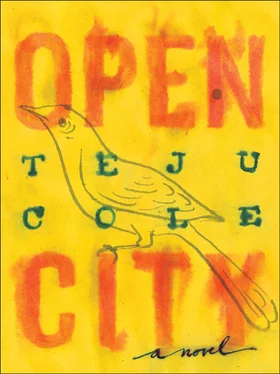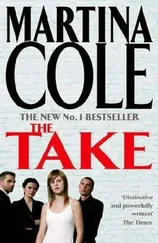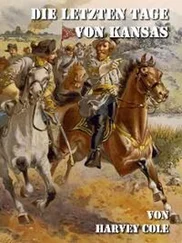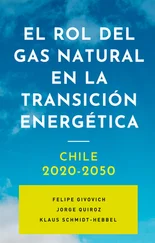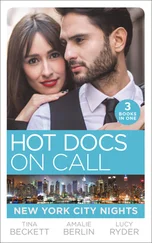Set against this bigger picture, the many smaller ones: in the spring, I saw an old gentleman. Mr. F., of Westchester County, was eighty-five years old and, save for some cataracts, was in remarkably good physical health. For a few months, his family had assumed that he was sliding into Alzheimer’s disease: his attention wandered, his memory failed, and often he seemed to be lost in the moment. He said less and less, and when he did talk, he seemed to be interested only in old memories, some of which he mixed up. But eventually the neurologist found that there was no medical reason to believe he had Alzheimer’s; she had sent him up to us in Milstein, and her suspicion was proved correct: Mr. F. was depressed.
He was a Navy veteran of the Second World War, and had seen action in the Pacific. But he’d come home and married his sweetheart, and they’d had a large family — five children — all of them raised on his income as a factory worker in Albany, and hers as a nurse-aide and substitute teacher. His wife had died in 1999, and he’d moved in with the second of his three daughters a year later; it was while living there, in White Plains, that he began to eat and sleep badly, lose weight, sink into low moods, and experience a racing of his thoughts that he described, with great difficulty — he was a reticent man — as an effort to keep from drowning. When he came in, in his veteran’s cap and a blue windbreaker, he had that faraway look of those who had somehow gotten locked inside their sadness.
I saw him only twice (he went on to psychotherapy), but I remember how, after that second session together, by which time I had gotten a fairly comprehensive medical history from him, I explained to him how the various medications might work. I was telling him that it was unlikely he would see any improvement in his mood for about a month when he interrupted me, raising his hand gently. I stopped midsentence, and Mr. F. said, with sudden emotion in his voice, Doctor, I just want to tell you how proud I am to come here, and see a young black man like yourself in that white coat, because things haven’t ever been easy for us, and no one has ever given us nothing without a struggle.
At a light on 124th were two men in their twenties, fragments of whose conversation floated around me as we crossed the street. He come up, word? said one. He come up yo, said the other, I thought you knew that nigga. Shit, said the first, I don’t know that motherfucker. They acknowledged me, and I them, then they turned right and went down the street, toward the south. They walked effortlessly, lazily, like athletes, and I marveled at their prodigious profanity for a moment, then forgot about them.
About ten minutes later, as I came around the little road that runs above Morningside Park (before it becomes Morningside Drive proper), I noticed sudden movement in the shadows up ahead. My jumpiness hadn’t been necessary, and I smiled and relaxed when I saw who it was: the two young men at whom I had nodded earlier. They didn’t return the smile, but loped toward me, their every step seemingly calculated to save energy. They walked past me on either side without speaking to each other and as though they hadn’t seen me. Each appeared to be intent on his own thoughts. There had earlier been, it occurred to me, only the most tenuous of connections between us, looks on a street corner by strangers, a gesture of mutual respect based on our being young, black, male; based, in other words, on our being “brothers.” These glances were exchanged between black men all over the city every minute of the day, a quick solidarity worked into the weave of each man’s mundane pursuits, a nod or smile or quick greeting. It was a little way of saying, I know something of what life is like for you out here. They had passed by me now, and were for some reason reluctant to repeat that fleeting gesture.
We were in the day’s last light, and the street was largely in shadow. It was unlikely they would have recognized me again even in strong daylight. Still, I was unnerved. And it was in the middle of that thought that I felt the first blow, on my shoulder. A second, heavier, landed on the small of my back, and my legs gave way like sticks. I fell to the ground. I don’t recall if I cried out, or if opening my mouth I was unable to make a sound. They began to kick me all over — shins, back, arms — a quick, preplanned choreography. I shouted, begging them to stop, conscious of a man on the ground being beaten. Then I lost the will to speak, and took the blows in silence. The initial awareness of pain was gone, but now came the anticipation of how much it would hurt later, how bad tomorrow would be, for both my body and my mind. My mind had gone blank except for this lone thought, a thought that made my eyes sting, a prospect more painful, it seemed, than the blows. We find it convenient to describe time as a material, we “waste” time, we “take” our time. As I lay there, time became material in a strange new way: fragmented, torn into incoherent tufts, and at the same time spreading, like something spilled, like a stain.
There was no mortal fear. Somehow it was clear that they did not intend to kill me. There was an ease to their violence, and even though no gun had been brandished and no explanations given, I knew that they were in control. I was being beaten, but it was not severe, certainly not as severe as it could be if they were truly angry. “They” were not two, as I had thought: a third had joined them, and there was laughter, easy laughter, interspersed with profanities. When my eyes came into focus, I saw that, or had the impression that, they were much younger than I had guessed before, that they were no older than fifteen. And the words, fluent, spiking in and out of their laughter, seemed somehow distant from the situation, as if they were addressing someone else, as if this were like all the other times I had encountered those words: never hostile, never directed at me, as innocent as when these same words had been foreshadowed at the crossing. They were intended, now, to humiliate, and I shrank from them. My hand was raised against curses, too, as the blows kept coming, though less quickly. The boys continued to laugh, and one of them stepped on my hand one last time, especially hard. The world darkened. They left, sprinting, their basketball shoes thudding and squeaking against the ground.
They left, and time’s shape was restored. They’d taken my wallet and my phone. I sat on the road in silence, bewildered, thinking it could have been worse, thinking, too, that it had been inevitable. Above me, the evening lights of apartments came on, and there was still a little light in the sky; incoming night was poised between daylight and electric light; the light shining from interiors I could see but not reach seemed to promise that life was continuing. People were returning home from work, or preparing dinner, or finishing the last fragments of the afternoon’s tasks. People; but there were none on the street, just the dry wind falling through the trees. I sat in the street looking into a nettle-choked ditch. The intricacy of the weeds startled.
It could have been worse: an infuriating thought, a false thought, because what had happened was worse, worse than safety and an un-violated body. Then pain came streaming in, physical pain, as if the ambient temperature had suddenly risen and a dry heat was spreading to all parts of my body. The tears fell from my eyes. It hurt to breathe. I guessed at a broken rib or two, though that turned out not to be the case. The knuckles of my left hand were covered in sand and blood, and there was a gash across the back of the same hand, beyond the wrist; this was the hand I had lifted to protect my head as I lay curled on the asphalt with my knees brought up and head lowered. My mouth was numb, as after a visit to the dentist. It wasn’t my mouth, I thought as I moved my tongue around inside it, this uncooperative, alien, ugly mouth.
Читать дальше
